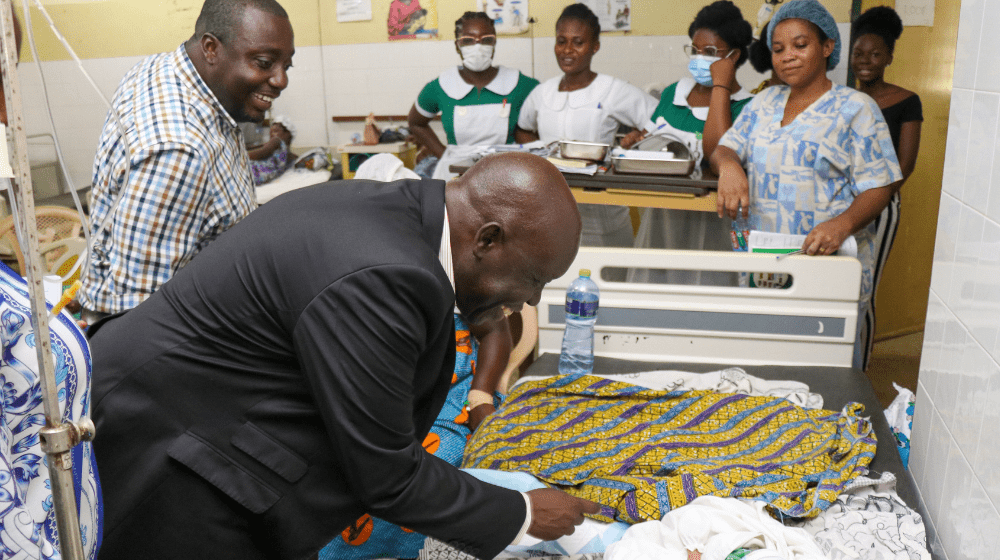Accra, 05.05.2024 - Right now, around the world, millions of lives are in the hands of midwives. Whether they are wading through flood waters to reach pregnant women or delivering babies in the scorching sun flying at 40 degrees, midwives are the unsung heroes of community health services. Thanks to midwives, births are safer. The sexual and reproductive health care they provide is more attuned to women’s needs, desires and local cultural practices.
When crisis strikes, midwives are often first on the scene, especially in remote communities. They know that babies arrive no matter a childbearing woman’s circumstances – whether she’s resting at home or fleeing from a conflict or disaster.
Already, it is estimated by some UN Agencies such as WHO that, a woman or girl dies every two minutes somewhere in the world due to pregnancy, childbirth or its aftermath. Now, climate change threatens to make the situation worse. Hotter temperatures complicate pregnancies and can lead to premature births and miscarriages. Sudden floods can sweep away roads, making it impossible to reach health facilities. Extreme weather events put women and girls at heightened risk of displacement, child and forced marriage, and can take away their means of supporting themselves.
Midwives are instrumental in navigating these challenges: They can provide up to 90 percent of essential services for sexual and reproductive health and bring their expertise and counsel to women wherever they are. Yet, there remains a critical global shortage of about a million midwives. Their working conditions can be arduous, discouraging many from joining the profession. Overt gender discrimination against this largely female workforce has also resulted in low wage rates, limited opportunities for advancement and reports of sexual harassment on the job.
Without significantly expanding midwifery, more women will die in childbirth. Millions of stories will have no heroes and instead end in tragedy.
In the Northern part of Ghana, midwives are providing reproductive health services to women and girls who are asylum seekers/refugees. When the Akosombo Dam Spillage Flood occurred, midwives continued to provide reproductive health services to the women and girls who were displaced by the flood.
Because of the central role of midwives in reproductive health care, UNFPA Ghana has been investing in midwifery education, regulation and strengthening the roles of professional midwifery associations. UNFPA supported the initiation of the Bachelor of Science Degree in midwifery at Kwame Nkrumah University of Science and Technology, Kumasi. UNFPA continues to provide additional support to KNUST such as the donation of skills laboratory equipment in 2023 to improve the quality of skills of the midwifery students. In partnership with the Ministry of Health, in 2023 UNFPA supported the assessment of 16 midwifery schools to establish Midwifery Centres of Excellence, and supported the development of preceptorship guidelines for midwives and trained tutors in its application.
In addition, UNFPA worked with the Ministry of Health and other partners to support the review of the Nursing and Midwifery Strategic Plan (2024 – 2028) and continues to work with midwifery associations to foster a stronger and harmonized voice that champions midwifery cause and reproductive health in general.
So, on this International Day of the Midwife, as we celebrate their countless achievements, let us write a new narrative – one in which we commit to supporting the midwifery profession, especially during a worsening climate crisis, which makes the need for midwives more urgent than ever. The time to act is now.
ABOUT UNFPA
UNFPA is the United Nations sexual and reproductive health agency. Our mission is to deliver a world where every pregnancy is wanted, every childbirth is safe and every young person's potential is fulfilled.
For further information visit: www.unfpa.org


